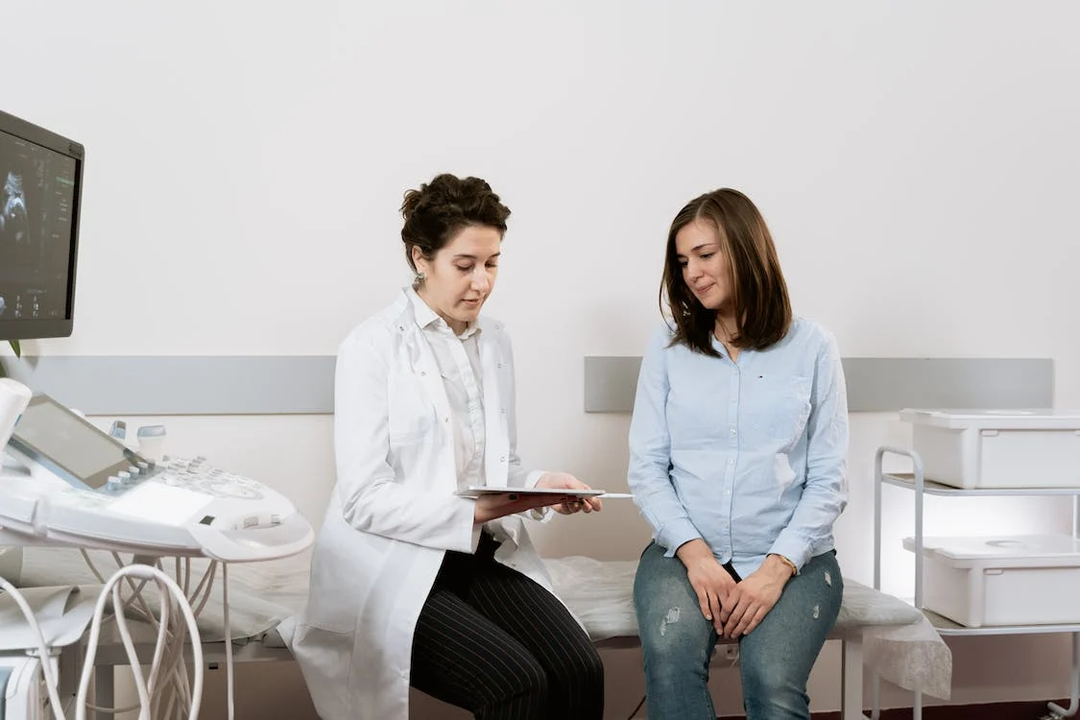
1. Consider the Credentials
Look for a board-certified Obstetrician-Gynecologist (OB-GYN), which assures they have undergone rigorous training and meet the professional standards in both obstetrics and gynecology. The American Board of Obstetrics and Gynecology (ABOG) certification is a testament to their expertise in the field. In fact, finding the right gynecologist and obstetrician can bring plenty of benefits, from the best prenatal care to managing complications during and after your pregnancy. Some OBs may also have additional qualifications such as high-risk obstetrics or specialized training in specific techniques or procedures. Moreover, you must also consider the location of their practice and ensure it is easily accessible from your home or workplace. Also, make sure they are affiliated with a reputable hospital or birthing center, which can greatly impact your overall experience.
2. Compatibility of Philosophies
Are they more inclined towards natural birth or do they frequently recommend medical interventions? Do they respect and support your choice of a birth partner or doula? It is important to have a provider who is respectful, and empathetic and promotes shared decision-making. You can learn more about their philosophy by asking questions during consultations or researching online reviews. For instance, you may want to know if they have a low or high c-section rate and their reasons for it. Keep in mind that your OB’s philosophy also extends beyond childbirth and should align with your values on breastfeeding, vaccinations, and other postnatal practices. Philosophies you should strive for should be ones that support your beliefs and not the other way around. A lot of people mix up an OB’s personal beliefs with their medical philosophy, so make sure to do thorough research.
3. Hospital Affiliation
Ask your OB about the hospital where they have admitting privileges and do some research on its safety record, quality of care, and facilities. You may also want to learn about their policies regarding birth preferences, such as using a birthing tub or having a water birth. If you are planning for a home birth or seeking an out-of-hospital setting like a birthing center, ensure your OB is comfortable and experienced with such settings. From the moment you enter the hospital or birthing center, your OB and the facility should work together seamlessly to provide you with safe, personalized care. If the hospital or center has a high c-section rate, be sure to ask your OB about their experience in helping women have a vaginal birth. It is also essential to know the kind of support you can expect during labor and delivery.
4. Availability
Will they be available during emergencies, or do they have a reliable backup in case they’re not available? How frequently will you meet them during prenatal visits? Will they be available for postnatal care and address your concerns? Communication is crucial, so make sure the OB practices in an environment where you can freely express your thoughts and ask questions. Take note of their communication style and whether they listen to your needs and concerns with patience. The overall relationship should be based on mutual trust and respect, which goes a long way in ensuring a positive childbirth experience. Granted, OBs have a busy schedule, but they should never rush through appointments or make you feel dismissed. More so, it is crucial to have an OB who is within your budget and accepts your insurance or offers affordable payment plans.
5. Reviews and Recommendations
Word-of-mouth, online reviews, and recommendations can provide valuable insights about the OB. You can also seek recommendations from your primary care provider, friends, or family who have had positive experiences. Consider the OB’s track record, patient satisfaction rates, and how they handle complications or difficult situations. However, keep in mind that everyone’s needs and preferences are different; what works for someone else may not be suitable for you. Even if you receive a glowing recommendation, make sure to do your own research and meet the OB in person before making your final decision. While recommendations are helpful, it’s essential to trust your instincts and choose an OB who feels like the right fit for you. Moreover, you can also ask questions about the hospital or birthing center’s staff, such as nurses and midwives, and how they work together with your OB.
6. Personal Comfort
Choosing the right OB is one of the most important decisions you will make during pregnancy. With these expert tips, we hope to help you find a partner who can provide you with exceptional care and support throughout your parenthood journey. Remember to consider their credentials, compatibility, hospital affiliation, availability, reviews, and recommendations, as well as personal comfort when making your decision. Taking the time to choose the right OB is crucial for a safe and positive childbirth experience. Let this be the start of a beautiful partnership that will guide you to the most precious moment of bringing your little one into this world.
Comments
comments